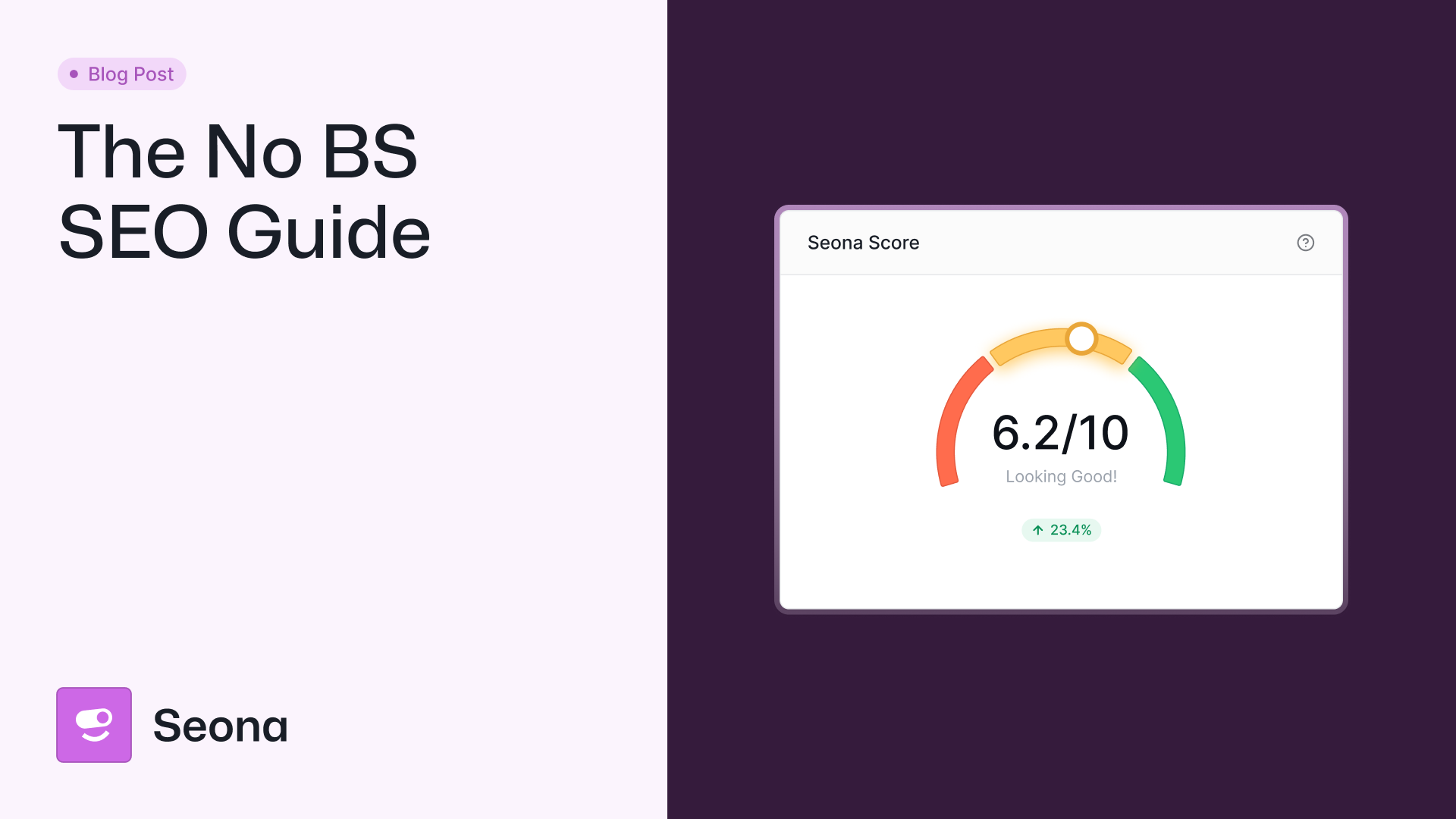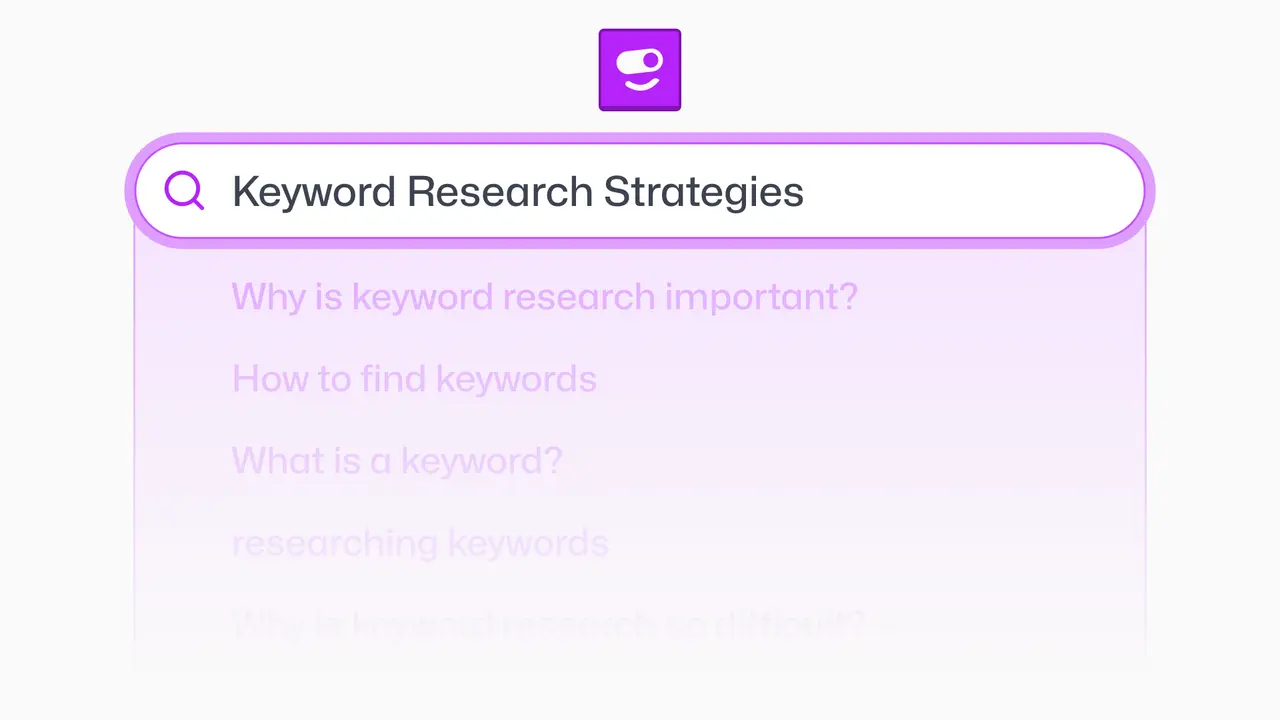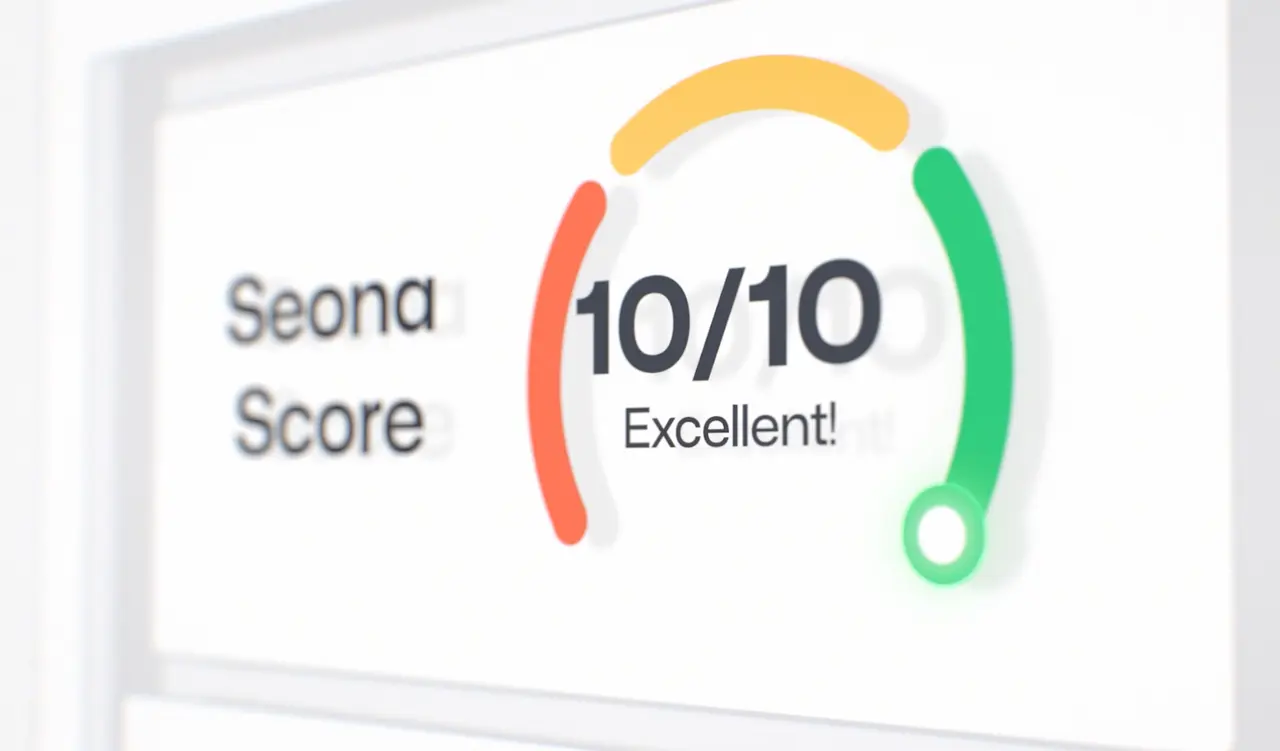Ways to Make Your Website Perform Better on Search Engines
Learn effective ways to improve your website performance for SEO. Boost SEO with these expert tips and strategies.
December 12, 2023

Introduction
Having a strong online presence is essential for businesses, and a vital element of this is ensuring that your website performs well on search engines.
Search Engine Optimization (SEO) is crucial because it helps your website rank higher on search engines like Google, leading to increased organic traffic, better visibility, and, ultimately, more business opportunities. In this comprehensive guide, we will explore 15 ways to boost your website performance for SEO.
You can also explore game-changing AI assistance like Seona, which takes your website's SEO and Website Performance to the next level, effortlessly enhancing your online presence with zero effort required.
Website Performance and SEO
Website performance encompasses various factors influencing how well your site ranks on search engines like Google. These factors include site speed, mobile-friendliness, content quality, user experience, and more.
Website performance is not just about satisfying search engine algorithms; it's also about delivering an exceptional user experience. When your website performs well in terms of SEO, it ensures that it's easily discoverable by search engines and provides valuable content and experiences to your visitors.
Now, let's explore the actionable tips for Web performance optimization in greater detail.
Optimize Your Website's Loading Speed
Site speed is a critical factor in SEO, affecting website speed directly. Slow-loading websites not only frustrate users but also receive lower search engine rankings. To improve loading speed:
- Compress images using tools like Photoshop or online image compressors.
- Use efficient file formats like WebP for images.
- Minimize HTTP requests by reducing unnecessary scripts and plugins.
- Utilize browser caching to store frequently accessed resources locally.
Improving your website's loading speed not only contributes to better SEO but also enhances user experience, reducing bounce rates and increasing visitor engagement.
Ensure Mobile Responsiveness
With a significant portion of internet traffic from mobile devices, your website must be mobile-friendly. Google prioritizes mobile-responsive sites, which significantly influences your site's rankings. To ensure mobile responsiveness:
- Use responsive web design that adapts to different screen sizes.
- Test your website on various mobile devices and browsers.
- Optimize images and fonts for mobile screens to enhance readability and performance.
Some website builders, such as our AI-powered Levi, come equipped with mobile-optimized sites right from the start. This not only ensures that your website meets SEO requirements but also caters to the diverse audience accessing your site via smartphones and tablets.
Create High-Quality, Relevant Content
Content is at the heart of SEO. High-quality, informative, and engaging content not only attracts visitors but also keeps them on your site longer. To create compelling content:
- Conduct comprehensive keyword research to identify relevant keywords and phrases.
- Address users' questions and needs by providing in-depth and well-researched content.
- Use visuals like images, infographics, and videos to enhance understanding and engagement.
Quality content not only improves SEO but also establishes your website as a valuable resource in your industry.
Enhance User Experience
A positive user experience is crucial for both SEO and Website Performance. User-friendly websites tend to rank higher on search results. To improve the user experience:
- Simplify navigation by using clear menus and intuitive site structures.
- Ensure fast and intuitive user interfaces to minimize user frustration.
- Optimize your website's layout for readability and accessibility.
A user-friendly website not only satisfies search engine algorithms but also encourages visitors to explore and engage with your content.
Optimize On-Page SEO
On-page SEO involves optimizing individual web pages to rank higher and earn more relevant traffic. Key on-page elements to focus on include:
- Title tags that contain relevant keywords.
- Meta descriptions that provide concise summaries of page content.
- Header tags (H1, H2, H3) to structure your content and make it more accessible.
- Keyword optimization throughout your content.
- Effective internal linking to guide visitors to related content.
On-page SEO fine-tuning not only improves your site's SEO but also enhances the overall user experience by making your content more organized and easily digestible. If you’re looking for an easy way to improve your on page SEO, check out Seona.
Improve Website Security
Search engine algorithms prioritize secure websites. To boost security and gain SEO benefits:
- Install an SSL certificate to secure data transmission between your site and users.
- Regularly update software, plugins, and themes to patch security vulnerabilities.
- Monitor your website for malware and hacking attempts using security plugins or services.
A secure website not only ranks better on Google but also builds trust with your visitors, increasing their confidence in sharing their information or making transactions.
Leverage Social Media
Social signals can indirectly impact SEO by driving traffic and enhancing your brand's online presence. Active social media profiles and shares can increase brand visibility and website traffic. To maximize social media impact:
- Share valuable content from your website on your social media platforms.
- Engage with your audience by responding to comments and messages promptly.
- Use relevant hashtags to reach a broader audience interested in your industry.
While social media may not directly affect your search engine rankings, it can significantly boost your website's visibility and overall online presence.
Build High-Quality Backlinks
Backlinks are links from other websites to your site. High-quality backlinks from authoritative sources signal to search engine crawlers that your site is a valuable resource. Focus on earning high-quality, relevant backlinks by:
- Creating exceptional content that other websites want to link to.
- Guest posting on reputable websites in your industry.
- Engaging in influencer collaborations that can lead to mentions and backlinks.
High-quality backlinks improve your site's authority in the eyes of the search index and also drive direct referral traffic.
Optimize for Local SEO
If your business serves a local audience, local SEO is vital. Ensure your website is optimized for local searches by:
- Creating a Google My Business profile with accurate business information.
- Nurturing online reviews from satisfied customers.
- Including local keywords in your content and meta tags.
Local SEO optimization not only improves your website's visibility in local searches but also drives foot traffic to physical locations if you have them.
Implement Structured Data Markup
Structured data helps search engine crawlers understand your content better, potentially leading to rich snippets in search results. Use structured data to mark up various types of content on your site, including:
- Products, including prices, availability, and ratings.
- Reviews with details on the product or service reviewed.
- Events with dates, times, and locations.
- Frequently Asked Questions (FAQs) to provide quick answers to common queries.
Structured data not only improves your site's visibility in search results but also enhances the user experience by presenting information in a more structured and informative manner.
Monitor Website Analytics
Regularly analyzing your website's performance through tools like Google Analytics allows you to identify areas for improvement and track progress. Key metrics to monitor include:
- Organic traffic: Measure the amount of traffic coming from search engines.
- Bounce rate: Evaluate how engaging your content is.
- Conversion rate: Track the percentage of visitors who complete desired actions.
- Keyword rankings: Monitor how your site ranks for key search terms.
Website analytics provide valuable insights into the effectiveness of your SEO strategies and allow you to make data-driven decisions for improvement.
Reduce Bounce Rate
A high bounce rate indicates that visitors leave your site quickly, negatively impacting the website. To reduce bounce rate:
- Improve page load times by optimizing images and scripts.
- Enhance content quality to make it more engaging and relevant.
- Ensure a clear call-to-action (CTA) on each page to guide visitors to the next step.
Reducing bounce rates not only benefits SEO but also contributes to higher conversion rates and user satisfaction.
Optimize for Voice Search
As voice search gains popularity, optimizing your content for voice queries can give you a competitive advantage. To effectively do this:
- Incorporate natural language and long-tail keywords into your content. These phrases should mimic how people typically converse and ask questions aloud.
- Craft your content to provide direct answers to common voice search queries. This ensures that your information aligns with what users are seeking.
- Ensure your website is mobile-friendly and loads quickly, as voice searches are often performed on mobile devices. A seamless mobile experience is essential.
- Implement structured data markup, such as schema.org, to enhance the visibility of your content in voice search results. This structured information helps search engines understand your content better.
By following these steps, you can optimize your content for voice search and improve your chances of ranking well in this increasingly important search channel.
Focus on Core Web Vitals
Core Web Vitals, including loading performance, interactivity, and visual stability, are now crucial factors affecting website ranking. Prioritize optimizing these aspects of your site:
- Loading performance: Ensure fast loading times, especially on mobile devices.
- Interactivity: Ensure your site is responsive and interactive for a smooth user experience.
- Visual stability: Prevent layout shifts and maintain a stable visual presentation.
Addressing Core Web Vitals not only improves your SEO but also enhances user satisfaction, leading to better ranking on Google.
Stay Updated with SEO Trends
SEO is constantly evolving, with search engines regularly updating their algorithms and priorities. Neglecting to keep pace with these developments can result in declining website visibility and rankings.
Critical facets of SEO's evolution encompass an increased focus on content quality and relevance, the adoption of mobile-first indexing, optimization for local SEO, and consideration of technical elements.
Staying up-to-date also entails adapting to emerging trends such as voice search, giving precedence to user experience, and leveraging data analysis for informed decision-making.
Key Takeaway
If you're serious about taking your website's SEO performance to the next level, Seona is the all-in-one solution you've been searching for.
Seona simplifies the complex process of optimizing your website's on-page SEO, fixing code issues, and providing valuable analytics insights. With Seona, you can streamline your SEO efforts, saving time and helping you achieve better results faster.
Say goodbye to the hassle of juggling multiple tools and welcome the convenience of Seona to elevate your website's SEO performance. Try Seona now for free and experience the difference in SEO made easy.










